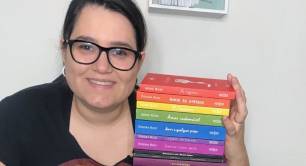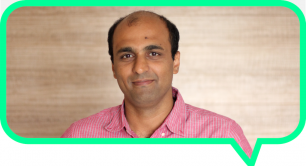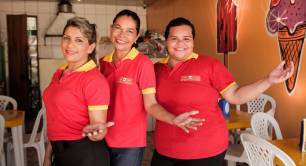‘Real Madrid’s Marcelo Vieira da Silva financed our first 100 sinks’ - Ana Paula Rios, Pias do Bem
Engineer Ana Paula Rios is the founder of Da Rua para Você, a textile printing shop that employs people experiencing homelessness, and Banho da Alegria, which offers them baths. When Covid-19 hit Brazil, she set up Pias do Bem (‘Good Sinks’): a portable sink providing access to clean water to Rio de Janeiro’s workers and those living on the streets. She speaks to Pioneers Post about raising eyebrows as an all-female team, the 'rollercoaster of emotions' under Covid-19, and why support from women's NGO Asplande has been so invaluable. Plus, Asplande coordinator Dayse Carvalho on the impact of the coronavirus on Rio's female entrepreneurs.
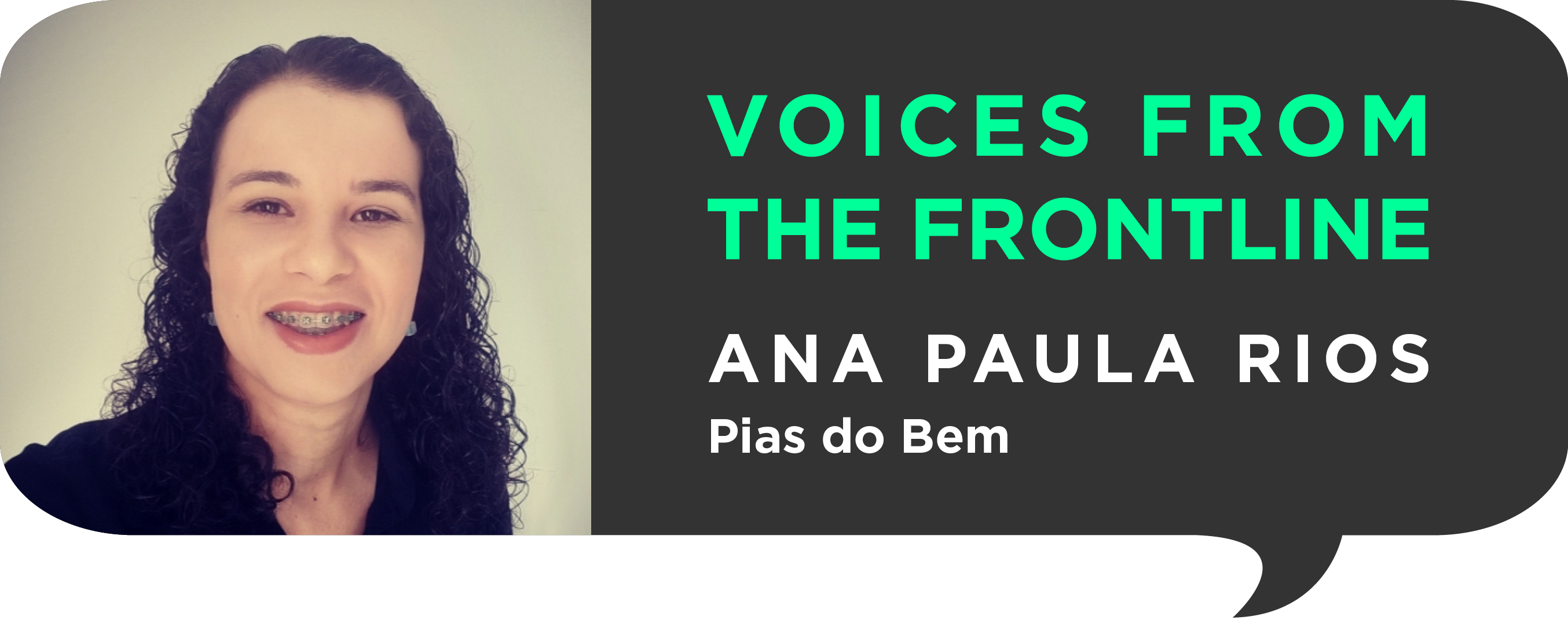
“With the quarantine, we had to pause all of the work of Da Rua para Você and Banho da Alegria. They both require mostly on-site work and many volunteers daily to keep them running.
But after some days not working at all, I was watching the WHO’s [World Health Organization] recommendations to slow the spread of Covid-19. All I kept thinking was: these measures couldn’t be applied to people living on the streets. They can’t do social isolation nor wash their hands frequently. Any public policy attempt to help them out – if it existed – would be impossible, because currently here in Rio, we have no updated database with figures on the homeless population. The government doesn’t know who these people are or where they are.
So as I thought of the possibility of a portable sink, my first challenge was to develop one that I could build, carry and install on my own, without having to expose anyone else to the risk of contamination. The sink is made out of a few lightweight pieces of wood, the water is held in plastic buckets – like the ones we have at home, some simple piping, a tap and a spout. The whole sink weighs about 13kg.
My first challenge was to develop a sink that I could build, carry and install on my own, without exposing others to the risk of contamination
I found some people who wanted to help out and it soon turned into a collaborative project. My part is producing and installing the sinks and I have volunteers in every location the sinks are present to keep the plastic bucket filled with water, provide detergent and paper towels daily.
We are now trying to develop some sort of system to improve the tracking of their maintenance – that has been the biggest challenge. My initial idea was to pay the people that would be using the sink to keep track of maintenance, but due to restrictions on movement around the city, that wasn’t possible.
The first 100 sinks were financed by the professional football player, Marcelo Vieira da Silva – he plays for the Spanish club Real Madrid. As a native of Rio, he heard about the sinks via word of mouth and wanted to help. After that, we developed a system where social organisations that work with the homeless order sinks and they pay for them.
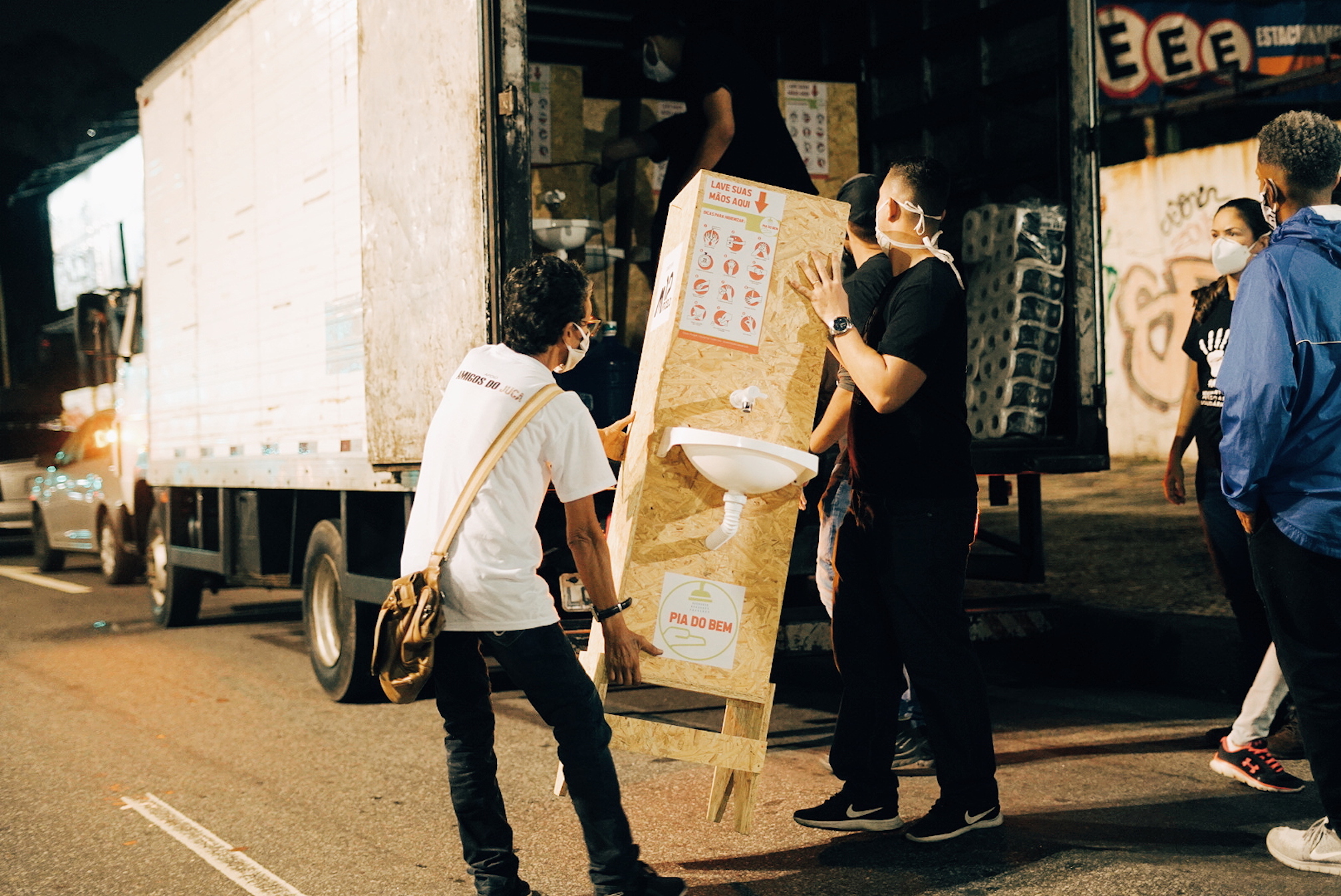
Above: The final design is made of a few lightweight pieces of wood and the water is held in plastic buckets. The whole sink weighs about 13kg (credit: JP Maia / @asfotosdejoao)
It costs around R$280 (GB£44) to produce a sink. That money is divided between the cost of the materials, a salary for Renata Ciannella, my carpenter, and some for me. I have no way of financing any of the sinks myself – since my activities with the other projects stopped, I have been without any income. The organisation comes to my house and picks up the sink and does the installment themselves in the community of their choosing.
We are an all-female team. It is pretty funny to see people’s surprise when they come to collect their sink. It is usually men and they are always suspicious when they see that I’m the engineer and I work with a female carpenter. I can’t even count the times they have stared at me in awe as they see me handle a screwdriver and they can’t help but offer help when we carry the sink to their vehicle. And the whole time we are like – we carry these sinks all day long!
It’s pretty funny to see people’s surprise when they come to collect their sink. Men are always suspicious when they see that I’m the engineer
So far we have installed 118 sinks throughout the city of Rio and three others in the states of Rondônia, Paraná and Brasilia. We also have plans to install one in Paraguay. Communities and friends that have social organisations have reached out to me online and I have built a manual that teaches them how to build their own sink, and I follow their process through Whatsapp.
Asplande [see below] has been essential in this whole process. Technically, my communication with them could have ended on 27 March, which was the last day of our Rede Impacta Mulher incubation process. However, they chose to keep all of their female entrepreneurs on and offer classes, meetings and help with promoting our work on social media.
These days have been a rollercoaster of emotions, I think everyone is feeling that. Most of them are heavy and sad. The fact that we have the commitment of the weekly meetings and classes with Asplande really helps keep a sense of routine and motivation. Not to mention it strengthens all of our project ideas. Since the beginning I noticed the Asplande team was different. They are very tight-knit and you can tell they care about the entrepreneurs. Their constant worry and support for us makes the difference.”
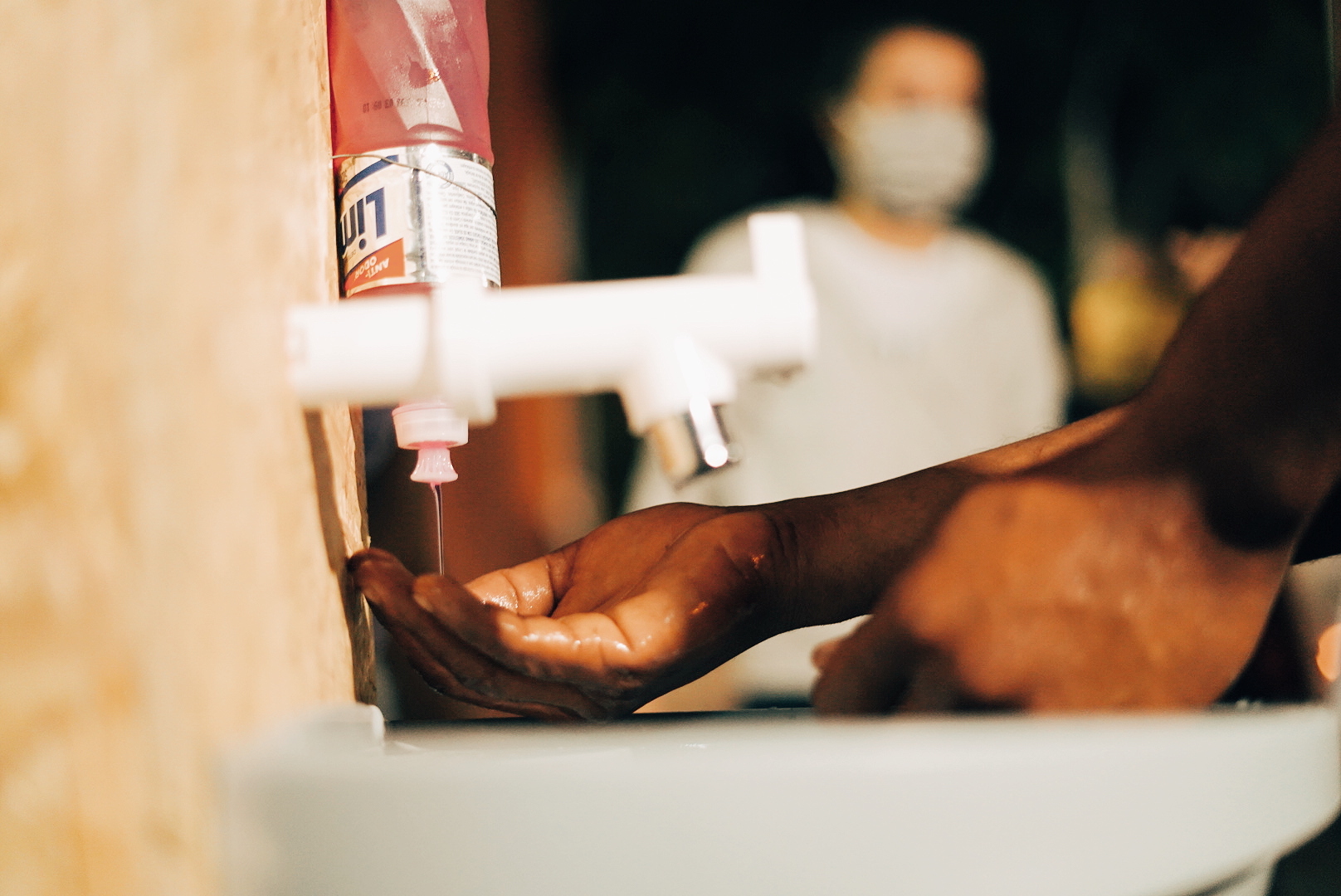
Above: The project has installed 118 sinks throughout the city of Rio so far, and three others in the states of Rondônia, Paraná and Brasilia (credit: JP Maia / @asfotosdejoao)
Ana Paula is among the many entrepreneurs supported by Asplande, an NGO founded in 1992 to improve the socio-economic inclusion of women from favelas or periferias (underprivileged suburbs) in Rio de Janeiro. Asplande coordinator Dayse Carvalho tells us what the current pandemic means for her wider network of women entrepreneurs.
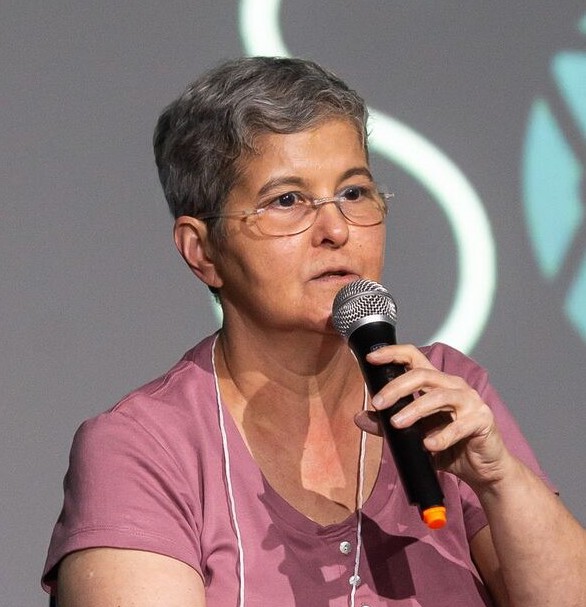 “The coronavirus pandemic brings a lot of suffering, in terms of health and economically, to our beneficiaries. Not only in Rio but around the world, women, especially Black women and those from underprivileged circumstances, will always be the ones that are mostly impacted by such drastic changes in circumstances.
“The coronavirus pandemic brings a lot of suffering, in terms of health and economically, to our beneficiaries. Not only in Rio but around the world, women, especially Black women and those from underprivileged circumstances, will always be the ones that are mostly impacted by such drastic changes in circumstances.
The women entrepreneurs at Asplande aren’t entrepreneurs by choice. Their entrepreneurship is born out of necessity. They must sell their lunch to buy their dinner. During the Covid-19 crisis, around the world we are seeing small businesses, such as the ones of the women we support, being forced to close down.
At Asplande, we have been working from home since 17 March. We’ve been focusing our efforts on initiatives to at least mitigate the effects of the pandemic on the women entrepreneurs that we work with. Currently, we are working with Ashoka and with other organisations based in Rio de Janeiro [Saúde Criança and Redes da Maré] to create a financial backup fund for entrepreneurs. This will ensure some funding for the businesses to get back on their feet, when activities are allowed to resume.
These women's entrepreneurship is born out of necessity. They must sell their lunch to buy their dinner
We’ve made an effort to closely follow the entrepreneurs we support at Asplande through messaging and social media. We have been offering online courses and conversation circles to discuss entrepreneurship-related topics. So far, we have been doing around two online courses and nine conversation circles per month. We also released two “service catalogues” to showcase the work of entrepreneurs that have adapted to offer services online.
Our workload has actually increased since the pandemic began. It has been an opportunity to strengthen our online learning platform. Before, there was a lot of resistance, including from the women in favelas and peripheries, to make a habit of using online platforms. But this new situation makes them a necessity.
Of course the challenges we are facing are many. One of the biggest has been to find partners willing to finance our entrepreneurs’ projects. With the economic recession, supporting social projects is one of the first cutbacks that businesses and organisations have been making.”
Read more about Pias do Bem, Banho da Alegria and Asplande. Rede Impacta Mulher (Women’s Impact Network) is run in partnership with UK social enterprise incubator _SocialStarters, and supported by the British Council’s DICE programme.
Ana Paula and Dayse were speaking to our DICE Young Storymaker Maria Eduarda Lannes, who also translated their words from Portuguese into English.
Header image credit: JP Maia / @asfotosdejoao)



